Gabe12logan
MY BLOGS
-
Earth and Universe
http://universe-earth.blogspot.com/
information about earth and universe
LATEST ARTICLES ( 55 )
-
Magellanic Clouds
Magellanic Clouds are two small irregular galaxies that are gravitationally bound to our Milky Way galaxy. Both are visible to the naked eye, but only from the... Read more
Posted on 06 May 2011 ASTRONOMY, SCIENCE -
Galaxy Clusters
is the name of the clusters of galaxies mutually related with gravitational force. They can be divided into regular and irregular. Regular clusters of galaxies... Read more
Posted on 05 May 2011 ASTRONOMY, SCIENCE -
Ring Galaxies
Ring galaxy is a galaxy, which in form resembles the ring. Ring galaxies are composed of massive, relatively young blue stars that are extremely bright. The... Read more
Posted on 03 May 2011 ASTRONOMY, SCIENCE -
Elliptical Galaxies
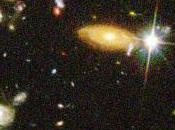
Elliptical galaxies don't have spiral arms that look's like a monotonous elliptical clusters. They have very little inter-stellar gas, which is why there is no... Read more
Posted on 02 May 2011 ASTRONOMY, SCIENCE -
Spiral Galaxies
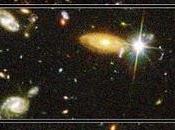
Spiral galaxies are the most common type and our galaxy is a spiral galaxy. These galaxies are characterized by curved, spiral structure that wrap the nucleus.... Read more
Posted on 29 April 2011 ASTRONOMY, SCIENCE -
Irregular Galaxies
are a special group that have no symmetry or usual signs of other galaxies. The mass of them is small and they are of low-gloss. Read more
Posted on 27 April 2011 ASTRONOMY, SCIENCE -
Dark Nebula

Dark nebulae are clouds of dust that are easily obscure brightness of the stars behind them. They are physically very similar to reflection nebulae. They look... Read more
Posted on 25 April 2011 ASTRONOMY, SCIENCE -
The Earth Day
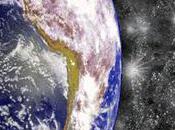
The Earth Day is celebrated on 22nd April in over 190 countries worldwide. At the UNESCO conference in 1969 John McConnell was first introduced the idea of... Read more
Posted on 22 April 2011 ASTRONOMY, ENVIRONMENT, SCIENCE -
Planetary Orbit
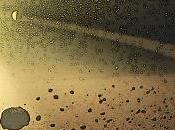
Orbit is the path that makes one body around another body, while under the influence of some force. And planetary orbit is the way that the body makes in his... Read more
Posted on 21 April 2011 ASTRONOMY, SCIENCE -
Extraterrestrial Life
The term extraterrestrial life indicates an unknown life forms that might exist beyond Earth. So far it was not found in any solar system body, but may exist... Read more
Posted on 20 April 2011 ASTRONOMY, SCIENCE -
Gas Giants
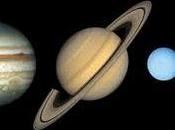
Gas giants are a kind of planet, which, unlike the stone or the terrestrial planets, don't have a clearly defined area. Therefore, it is not possible in a simpl... Read more
Posted on 18 April 2011 ASTRONOMY, SCIENCE -
Fermi Paradox
If this galaxy is full of aliens, one of these mighty civilizations would already be old enough to be spread throughout the galaxy. They are all around us. How... Read more
Posted on 16 April 2011 ASTRONOMY, SCIENCE -
Astrobiology
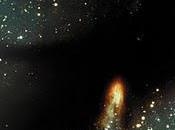
explores life as a planetary phenomenon, with the aim of understanding the fundamental nature of life on Earth and possibly elsewhere in the universe. Read more
Posted on 15 April 2011 ASTRONOMY, SCIENCE -
Extrasolar Planets
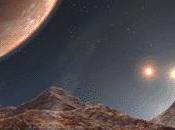
The "Extrasolar planets" are all the planets orbiting outside our solar system around another star. The number of discovered extrasolar planets is increasing... Read more
Posted on 14 April 2011 ASTRONOMY, SCIENCE -
Variable Stars
The first variable star was discovered in 1595th, when amateur astronomer David Fabricius noticed that star Omicron Ceti changes its brightness so that it can... Read more
Posted on 13 April 2011 ASTRONOMY, SCIENCE -
Cassini Division
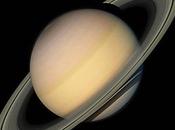
is the area between Saturn's A and B ring, which contains very little matter and looks like a dark gap in the ring. Width of Cassini Division is 4800 km. Read more
Posted on 11 April 2011 ASTRONOMY, SCIENCE -
2005 Yu55

Asteroid 2005 YU55 with diameter of 400 meters will be away from the Earth only 0.85 lunar distances in early november this year(2011). Read more
Posted on 09 April 2011 ASTRONOMY, SCIENCE -
Distance From Earth To Moon
The first measurement of the distance from Earth to the Moon and the Sun made a Greek astronomer Aristarchus of Samos (310-230). Read more
Posted on 07 April 2011 ASTRONOMY, SCIENCE -
Geosynchronous Orbit
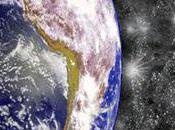
is a direct, circular orbits of artificial satellites around the Earth where the satellite processions period is equal to the period of rotation of the Earth. Read more
Posted on 06 April 2011 ASTRONOMY, SCIENCE -
Geostationary Orbit
Geostationary orbit is a special case of geosynchronous orbit. It is a circular orbit around the Earth with inclination 0° (the body is above the Earth's... Read more
Posted on 05 April 2011 ASTRONOMY, SCIENCE
